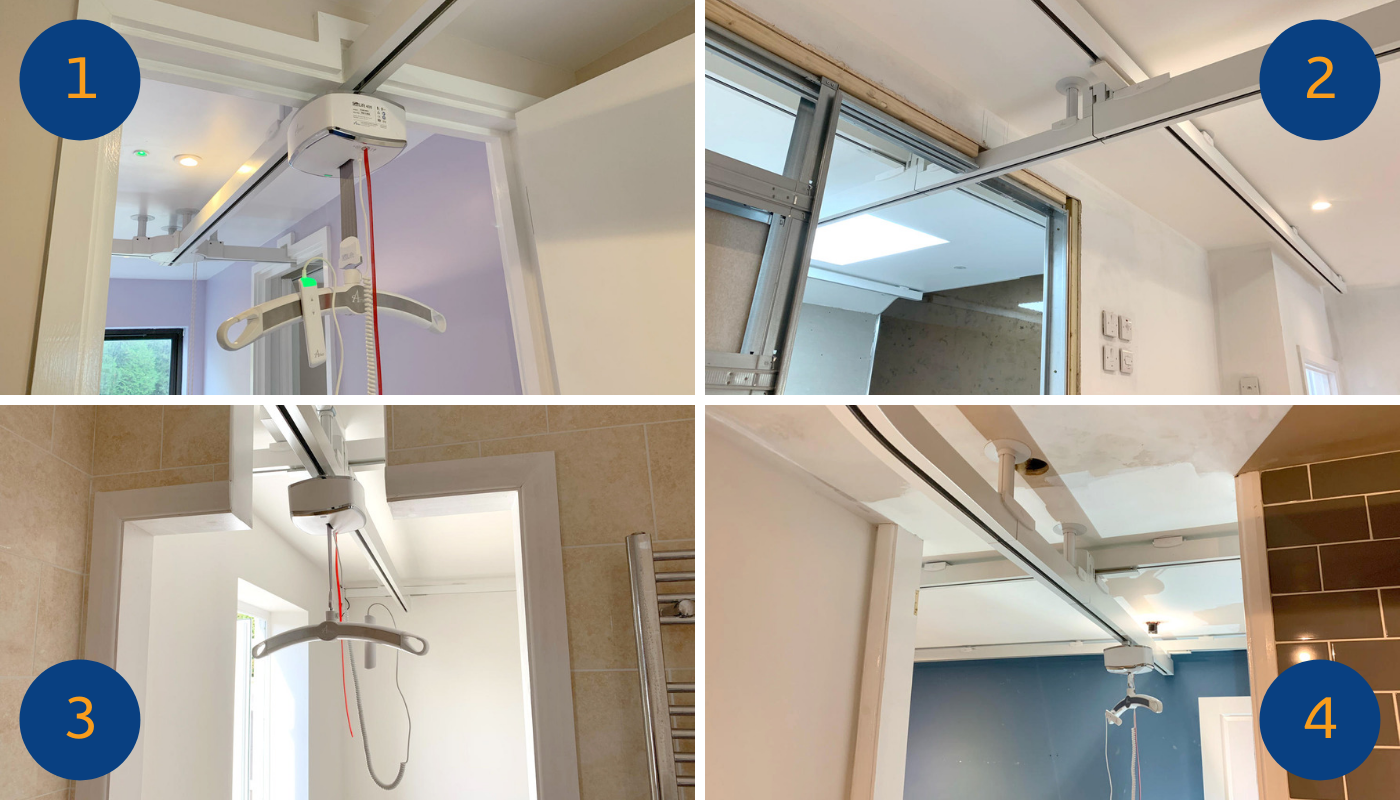The key thing to recognise is that we need to move a hoist through between the room, and as a result, we need to install a track to carry the hoist.
Things to consider are:
- Height of the track in the two adjacent rooms
- Requirement for a door for privacy
- Requirement to contain humidity or bathroom odours
- Wall construction
With all these items considered, we can start to make a decision on how we're going to adapt the doorhead to allow passage of the track and hoist unit.


In Image 1, the track is embedded to the doorhead with an exact cutout, allowing the hoist to pass through the doorway just underneath the top of the door frame. In this way when the door is closed, there is little or no gap between rooms so ideal where the steam or odour needs to be contained in a bathroom.
In Image 2 we see the same format of embedding the track into the doorhead. However, in this instance, the bathroom has a sliding door in a pocket. This door style is very popular as it saves a huge amount of space by removing the door swing, However the door relies on a top track to allow it to slide so the door set has to be specified carefully to ensure that the top track can be cut to allow our hoist track to pass through, and still allow the door to slide all the way home.
In Image 3 the door head has been slotted to enable the width of the hoist unit to pass through. In this way the doorhead maintains some closure.
in Image 4 the doorhead is removed completely, so that the doorframe goes all the way to the ceiling. This is the most open and unobtrusive, and the easiest to install to. However there is no barrier to any movement of air between rooms.
Our Project Consultants can help you decide which is the best way to design your door head adaptations. Send us an email to estimating@wealdenrehab.com or give us a call to book a free consultation: 01634 813388

Latest Blog Posts
Sustainable shower chairs for smarter budgets
Future-proofing care: Sustainable shower chairs for smarter budgets

Advancing safe, dignified bathing
A clinical perspective on the IndiGo² powered shower chair range

Seasonal opening times 2025/26
2025 Holiday Season Update - Our team are here for you but we will be taking a break between the 24th December and 2nd January 2025.

New Shower Chair Innovation
Experience Wealden Rehab’s new shower chair innovation at the OT Show 2025

Responsive Care Equipment Supplier Across the UK
Supporting hospitals and care providers in unsettling times ...

NAEP Conference 2025
Meeting Occupational Therapists, Commissioners and Exploring Bariatric and Paediatric Solutions



